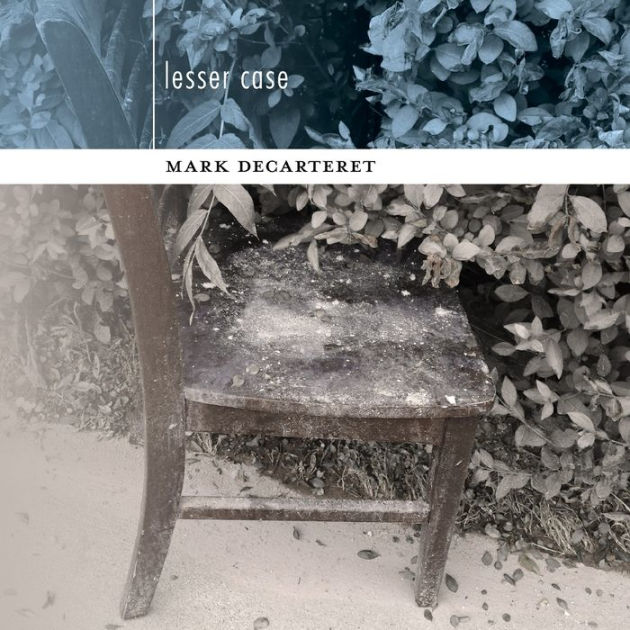lesser case
lesser case
by Mark Decarteret.
Nixes Mate Books, 86 pages,
paper, $18, ISBN: 978–1–949279–30–6
Mark Decarteret’s new book is, in many ways, about the universe of the within as it projects itself out upon that larger one that surrounds us. In the process, the poet whittles away at the veneers of life, self, and art to find or, more importantly, to reckon with, the truths found underneath.
His is a voice that beguiles through image and motif to unmask passion in brilliantly indirect ways. I cannot find a more concise example of this than the poem “helium,” which comes early on in the book:
she still keeps a balloon
he filled up his last birthday
& every year since
takes in one of his breaths
& makes this similar wish
It is an image which is at once shattering and celebratory in its restraint. It is also typical of the punctuation–free, ampersand and slash–laced rhythm that moves the language along in these poems.
Throughout the book, Mr. Decarteret peals away at several recurring themes, or worlds: the world of existence, the world of relationships, and the world of truth which he ponders may, or may not, include himself. We can see this latter refection in the poem “drift,” which he dedicates to Wallace Stevens:
at least I got the world right
if only for a minute
thought it can’t be a coincidence
it happening
while I wasn’t in it
Another recurring motif in lesser case is that of the writer and his work as it pursues this truth, a pursuit that the poet is not always delighted with, as with the poem “breath”:
what luck these words
knocked off like air
not to mention
the great measure
one needs to pull
off a good poem:
putting just one
of those moments
back in their place
From the standpoint of structure, these poems display an expert economy of language and brevity. Rarely does a poem exceed a single page, and yet each page is its own soup can of the cosmos. This does not take place without a wry sense of humor, as we see in the poem “burden”:
even the most aggrieved ghost
has grown fearful over time
of the relocated chair
Or as further reflected in “winter haiku”:
here we have five or six
different words for snow
& they all start w/fuck
But the overall tone of lesser case settles in a quiet, contemplative grace that occasionally borders upon the elegiac. In it, the poet reckons with his own end in the same inside–out fashion that infuses the whole book — soul bare, winking up/winking down, as in “elegy”:
these fingers
last touched
the skin
which last touched
the bones
which will soon
touch the last
of any dirt
he’ll lie still for
lesser case rewards repeated readings as its layering unfolds in a sort of slant–accessibility that slows the reader down, like hovering a cursor over a video for a moment before the image starts to play — as in the poem “back (scratcher)”:
your littlest
plastic hand
on a stick
this itch all
I’ve still left
of that past.
— Craig Sipe


